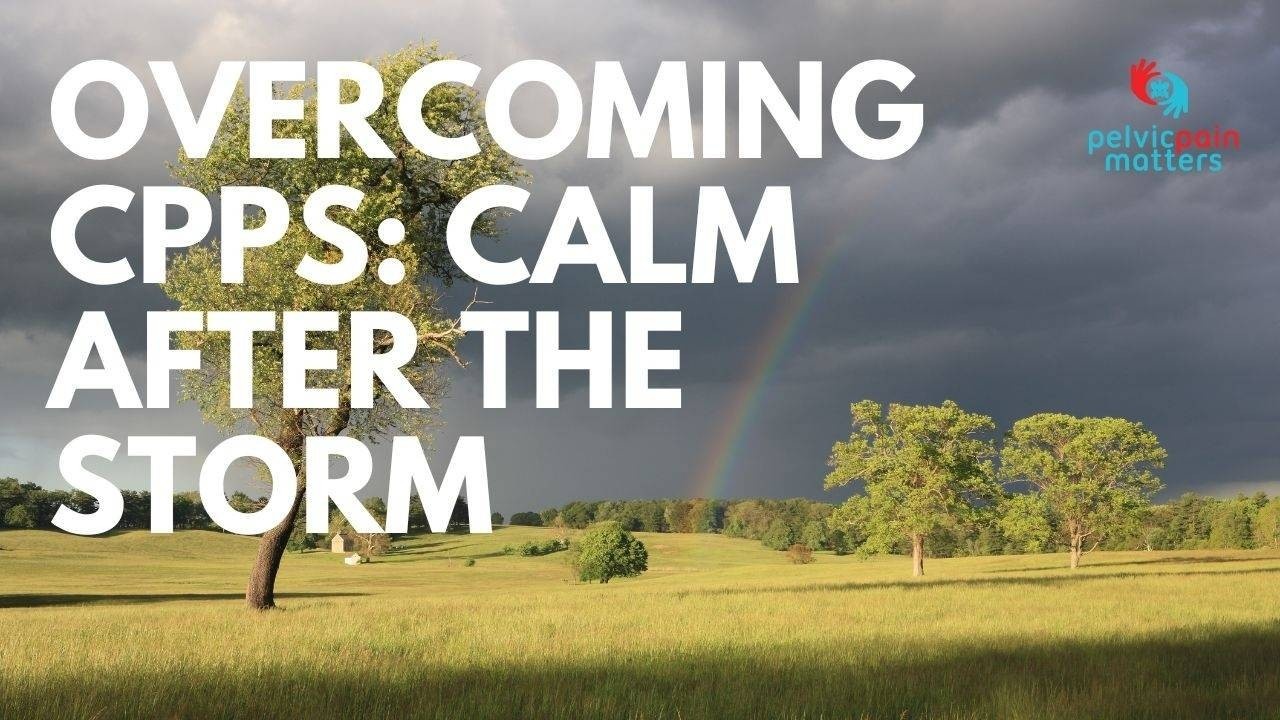Overcoming CPPS: Calm after the storm, by David Lowe

Overcoming CPPS: Calm after the storm
David Lowe
Along with an ache in the groin, a potent combination of rumination, fear and anxiety is commonly experienced by sufferers of chronic pelvic pain syndrome, or CPPS.
This is sometimes referred to as catastrophisation, and I certainly became an expert catastrophiser during the eight years I spent battling the condition.
Having the tools to counteract such feelings is an important part of overcoming CPPS for good – so let’s run through eight very effective strategies that can help you step back from the figurative cliff edge I mentioned in my previously post.
Firstly, remember that anxiety is all part of CPPS. There is a considerable mind-body element to the condition, so feeling anxious is part of the deal. To stop catastrophising, acceptance of anxiety is crucial. Rather than sending your mind on a downward trajectory that will only amplify any symptoms, try to acknowledge your feelings and even change your attitude towards them. They can be the catalyst to your recovery.
“Easier said than done,” I hear you mutter. And yes, it’s a big ask. I should know because I’ve been there myself. So, another important way to stop catastrophisation is to draw your attention away from both anxiety and the pelvis. It goes without saying that if your mind is consumed with the sensation in your groin, that sensation will be heightened. Diverting attention can be achieved by something as simple as a walk outdoors. Feel the wind on your face. Listen to the birds in the trees. Perhaps the sun is catching a part of the landscape or cityscape you haven’t noticed before. Be curious about your surroundings. Experiencing the familiar in new and interesting ways is immensely diverting.
The recommendations so far have been reactionary. Well, here’s something proactive to get stuck into. The water bottle analogy played a major part in helping me take control of my CPPS symptoms. It’s a great little trick every CPPS sufferer should learn. Watch pelvic pain expert Karl Monahan’s video on the subject here.
Next, keeping positive throughout the challenges of CPPS is hugely empowering. To do so, be sure you aren’t inadvertently fuelling negative thoughts, which only contribute to catastrophisation. For example, Googling CPPS and joining online forums where sufferers often post in their darkest moments can prompt a downward spiral. If you’re looking for support online, stick to positive communities, such as the Recovery Room on Facebook. This network was established to provide a supportive outlet for CPPS sufferers, with a culture of hope and positivity.
Catastrophisation typically occurs in the mind, with painful consequences for the body. Imagining awful scenarios and circumstances in the future is a very common habit of CPPS sufferers. With a holiday coming up, you may begin to picture a flare-up ruining what should be an important period of rest and relaxation. Perhaps there’s a weekend of passion with a loved one ahead, but instead of hot-blooded excitement, you dread a drop in your libido and failing to rise to the occasion. Don’t create self-fulfilling prophecies. Thoughts are not facts. They come and go. Do not dwell on negative imaginary scenes, but instead take your mind elsewhere. Concentrating on your breath can work wonders. Try breathing in through your nose for three seconds and out of your nose for four. Continue to do so until the imaginary catastrophe has left your thoughts.
Everyone experiences CPPS in their own unique way. This means everyone has their own unique flare-up / catastrophisation triggers. As I mentioned in my previous post, one of mine was coffee. While you work on beating the condition, reduce exposure to any triggers that make symptoms worse. Tight underwear proving a problem? Get some loose and comfy boxers. Spicy food prompting pain? Cook something plain but delicious instead. It’s important to note that such measures are only temporary. When you’ve beaten CPPS any previous sensitivities should reduce, hence why I can now enjoy a daily coffee with no achy consequences.
The helplessness of CPPS is infuriating, and of course yet another contributing factor to levels of pain. A study in the World Journal of Urology concluded that without any reduction in symptoms, catastrophisation can continue for prolonged periods of time. The study also found that overcoming helplessness was key to beating CPPS. That means being confident you will beat the condition is a crucial part of recovery. Using the techniques covered here you can gain the upper hand. You have everything you need to overcome this. A bit of confident swagger goes a long way.
Finally, be sure to be kind to yourself. CPPS increases anxiety, malaise and even self-loathing. So cut yourself some slack and look after Number One. You can get over this and you are definitely not alone.
David Lowe is a writer from London.

